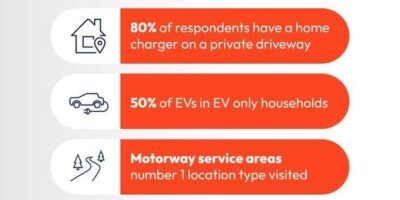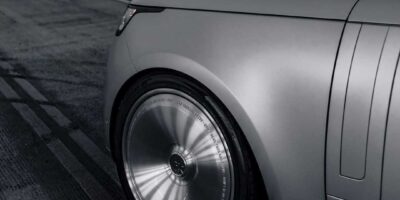MPs on four Parliamentary committees have demanded to know how the Government intends to electrify 25% of its departmental car fleet by 2022.
Chancellor of the Exchequer Philip Hammond made the commitment in last November’s budget. But, the MPs have questioned the Government’s commitment to achieving that step change in a joint report, published last month.
It says: “The Government should set out a procurement route map to show how it will achieve this target in the budget, and extend this commitment to cover the fleets of all departments, agencies and public bodies.â€
The report, from the environment, food and rural affairs, environmental audit, health and social care, and transport committees, highlighted the scale of the task faced by the Government by singling out fleets operated by the Ministry of Justice (MoJ) and the Department for Environment, Food and Rural Affairs (Defra).
The MoJ has just two electric vehicles (EVs) in its 1,482-vehicle fleet, it said, and Defra operated just two pure electric cars out of 4,000.
“The Government’s latest plan does not present an effective response to the scale of the air quality catastrophe in the UK,†said Neil Parish, chair of the environment food and rural affairs committee.
“We are concerned that the Government is treating air quality as a box-ticking exercise. Real change will require bold, meaningful action.â€
Defra fleet chief Dale Eynon made clear his commitment to electrifying the department’s car fleet when he spoke to Fleet News last year.
He outlined his strategy to ditching diesel and converting the entire fleet of 4,000 cars to petrol-hybrid or pure electric, which had started with a major policy change for the department. They are now only ordering petrol, petrol-hybrid and electric vehicles. “We have ditched diesel for cars,†he said.
The four committees launched their joint inquiry amid concerns over the inadequacy of the Government’s plan to improve air quality.
Their report calls on the Government to introduce a new Clean Air Act, a clean air fund financed by the transport industry, a national air quality support programme for councils, and to require manufacturers to end the sale of conventional petrol and diesel cars earlier than the current 2040 target (fleetnews.co.uk, March 15).
It said the 2040 target lacked sufficient ambition and the Government should instead “conduct a feasibility assessment to determine the earliest date by which this could be achieved, balancing the health impacts of air pollution, with economic and practical considerationsâ€.
The Society of Motor Manufacturers and Traders (SMMT) says an outright ban risks undermining the current market for new cars and the automotive sector which supports more than 800,000 jobs across the UK.
Furthermore, the SMMT says the burden of improving air quality should not be put solely on the shoulders of the automotive industry. Chief executive Mike Hawes told Fleet News: “Other sectors must also play their part in improving air quality.â€
The report also argues that clean air zones (CAZs) should be introduced where necessary by local authorities, not as a last resort as instructed by the Government.
However, the report recognises the introduction of more CAZs could negatively impact fleet operators, and calls on Defra and the Department for Transport to ensure their CAZ plans include “robust economic impact assessmentsâ€.
Both departments should also investigate the feasibility of providing small businesses with more time or resources to upgrade their vehicles and ensure they are properly signposted to any funding supporting the switch, it said.
Environment minister Therese Coffey told the joint inquiry that councils will be able to access the £220 million Clean Air Fund to mitigate some of the impacts of new air quality measures on affected businesses.
But the report questions whether the funding, which will not solely be aimed at supporting businesses, will be adequate.
It suggests that Defra should examine additional ways of raising funds for air quality improvements. This should involve establishing a fund for clean air initiatives partially financed by the auto industry and a national scrappage scheme, which was open to fleets.
The SMMT said manufacturers are already funding scrappage schemes themselves to get the older vehicles off the road.
The Government says it will publish its plan later in the year.








